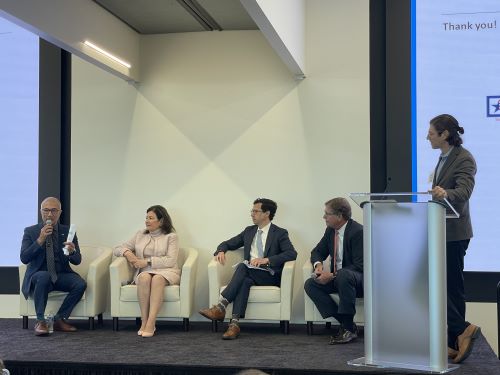Meaningful immigration reform key to continued innovation in tech and beyond
 The following article was submitted by Peter French, the founder of FreeFlow Research and president of Café Commerce.
The following article was submitted by Peter French, the founder of FreeFlow Research and president of Café Commerce.
Technology industry leaders and entrepreneurs from across the globe flocked to Austin this week for the 2015 SXSW Interactive Festival. SXSW Interactive serves as an incubator of tech and digital creativity and innovation. Sharing new ideas is a cornerstone of the festival, but the idea that should demand the most attention is one that has been necessary in the tech sector for years: meaningful immigration reform.
Several SXSW breakout sessions highlighted the ongoing disconnect between the rapidly growing tech sector and the United States’ broken immigration system. Our outdated immigration system is not structured to adapt to the perpetually evolving world of technology. A complex application process and limited visa availability for high-skill workers make it virtually impossible for tech employers to fully staff specialized positions. The inability to fill these positions stifles growth and inhibits additional jobs from being created due to innovation in the field.
American voter demographics are also perpetually evolving. As found in the recent study on The Changing Face of the Nation by the bipartisan Partnership for a New American Economy (PNAE), 19.2 million and 25.6 million potential new Hispanic and Asian voters could join the electorate by 2016 and 2020, respectively. This should be especially alarming to my fellow Republicans, considering Mitt Romney won just 27 percent of the Hispanic vote in 2012.
If these voting patterns continue, Republicans will face a tremendous disadvantage in future elections. And by failing to improve their political appeal with Hispanic and Asian voters, Republicans also jeopardize their self-prioritized commitment to growing the economy – especially in Texas.
According to Map the Impact, the University of Texas System (UTS) generated $38 million in licensing and royalty revenue from patents in FY 2010, and nearly three-fourths of those patents had at least one foreign-born inventor. Furthermore, immigrant-founded companies represented approximately 30 percent of new businesses in Texas from 2007 to 2010, and immigrant-owned businesses generated $10 billion in annual business income.
The H-1B visas required to employ highly skilled immigrants are arbitrarily capped at 65,000 per year. This number is far short of those needed to meet labor demands. Legislation recently introduced in the U.S. Senate by Sen. Orrin Hatch (R-UT) would increase the cap on H-1B visas from 65,000 to 115,000, with provisions to rise as high as 195,000 in a fiscal year where early filings exceed the cap.
While the economic need for substantive immigration reform is crystal clear, politics and partisanship have fogged the issue. Disruptive factions within both parties in Congress have prevented the advancement of any meaningful legislation. However, Republicans are posed the greatest risk by failing to implement substantive immigration reform.
The newly elected Republican Congress must prove it has the capacity to govern by passing immigration reform that meets the needs of our economy. Continued growth and viability of the Republican Party depends on it. As leaders in the tech industry, it is our civic duty to urge Congressional leaders to ensure the passage of meaningful immigration reform this year. Continued growth and innovation in our industry depends on it.








